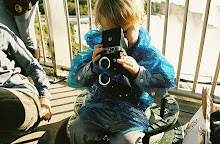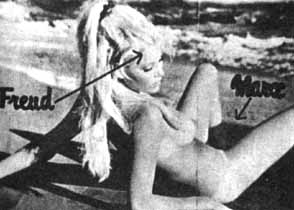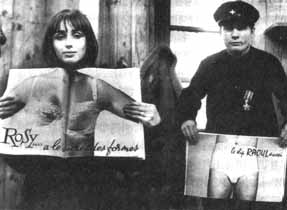Feminism's at a Standstill


This week, in my "Speech/Acts/Contexts" class, i elected to "present" on the second half of Judith Butler's newest book, Undoing Gender. Given Butler's popularity, i expected this class period to provoke an energetic dialogue about Butler's most recent contribution to the how's and why's of feminism, gender, and social change. Instead, everyone seemed bored.
Sure, i didn't have any trouble instigating a good old fashioned gross-out by reminding the class that Butler admits in the seventh chapter, "Quandaries of the Incest Taboo", "Well, I do think that there are probably forms of incest that are not necessarily traumatic or which gain their traumatic character by virtue of the consciousness of social shame that they produce" (157). But this was a cheap shot on my part because i knew that, since people didn't seem to have read, this would get them talking. i probably couldn't have made a worse move, because in the interest of inciting discussion i allowed the more nuanced component of Butler's argument, that,
It might, then, be necessary to rethink the prohibition on incest as that which sometimes protects against a violation, and sometimes becomes the very instrument of a violation. What counters the incest taboo offends not only because it involves the exploitation of those whose capacity for consent is questionable, but because it exposes the aberration in normative kinship, an aberration that might also, importantly, be worked against the structures of kinship to force a revision and expansion of those very terms. (160)
to be eclipsed by how freaky justifying incest seems. But maybe Butler's onto something: Wal-Mart refuses to carry Jon Stewart's psuedo-textbook America, but they've got every blonde brother-sister love book V.C. Andrews ever wrote on their shelves. In other words, by sanctioning the process whereby we allow for the pornification of incest whilst insisting upon its ungainliness, we miss the fact that both the prohibition and the practice of incest keep normative exchange value heterokinship rules in place. And for Butler, the larger concern is that the incest prohibition symbolically calls into practice the "normal" family because, without an understanding of normal filial behavior, departure from that behavior would be unknowable.







